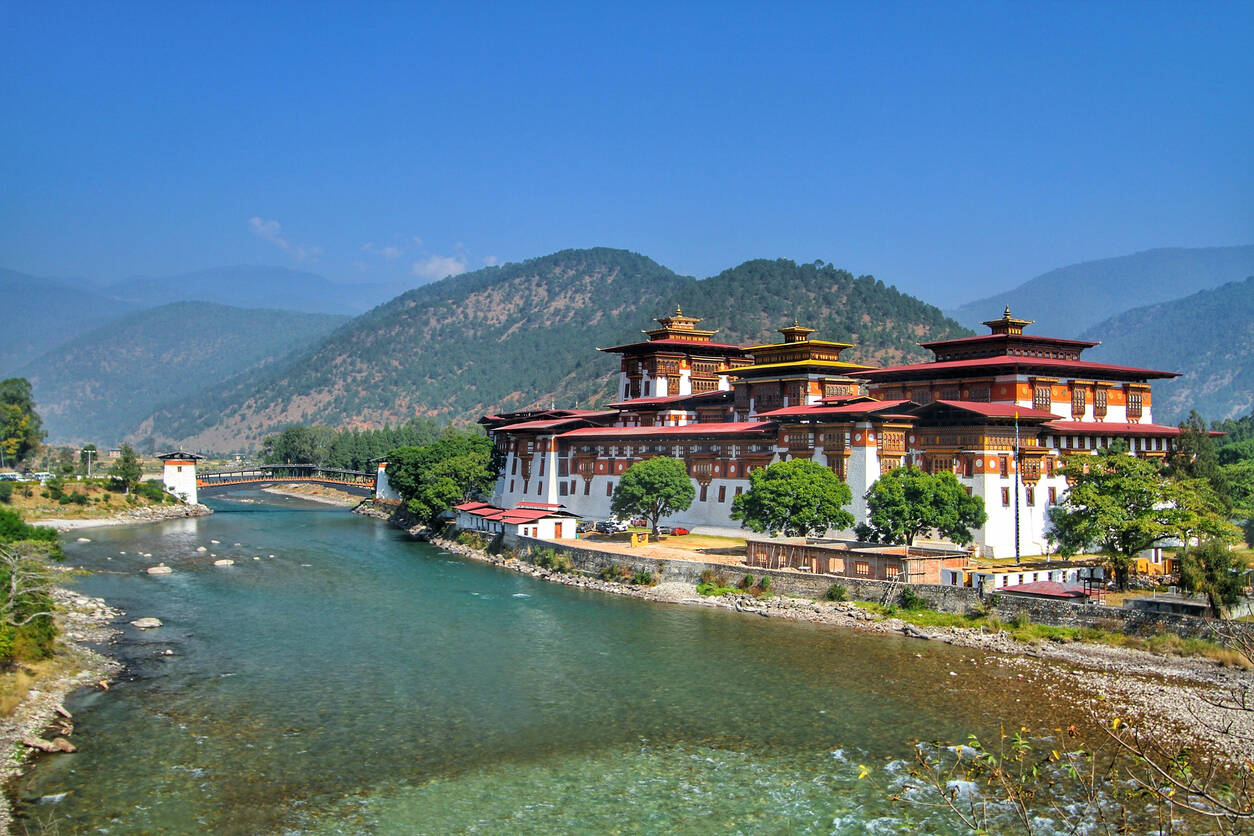Nothing shows any better how humanity needs to start and then keep working together for all our benefit than this killing, international pandemic, worst of the last more than 100 years. Coincidentally, I wrote this on social media, again, a week ago. Also coincidentally, an article in The Atlantic rather makes this same point now.
 Credit: Getty Images
Credit: Getty Images
Bhutan Is the World's Unlikeliest Pandemic Success Story
On january 7, a 34-year-old man who had been admitted to a hospital in Bhutan’s capital, Thimphu, with preexisting liver and kidney problems died of COVID-19. His was the country’s first death from the coronavirus. Not the first death that day, that week, or that month: the very first coronavirus death since the pandemic began.
How is this possible? Since the novel coronavirus was first identified more than a year ago, health systems in rich and poor countries have approached collapse, economies worldwide have been devastated, millions of lives have been lost. How has Bhutan—a tiny, poor nation best known for its guiding policy of Gross National Happiness, which balances economic development with environmental conservation and cultural values—managed such a feat? And what can we in the United States, which has so tragically mismanaged the crisis, learn from its success?
In fact, what can the U.S. and other wealthy countries learn from the array of resource-starved counterparts that have better weathered the coronavirus pandemic, even if those nations haven’t achieved Bhutan’s impressive statistics? Countries such as Vietnam, which has so far logged only 35 deaths, Rwanda, with 226, Senegal, with 700, and plenty of others have negotiated the crisis far more smoothly than have Europe and North America.
These nations offer plenty of lessons, from the importance of attentive leadership, the need to ensure that people have enough provisions and financial means to follow public-health guidance, and the shared understanding that individuals and communities must sacrifice to protect the well-being of all: elements that have been sorely lacking in the U.S.
America has “the world’s best medical-rescue system—we have unbelievable ICUs,” Asaf Bitton, executive director of Ariadne Labs, a Boston-based center for health-systems innovation, told me. But, he said, we have neglected a public-health focus on prevention, which socially cohesive low- and middle-income countries have no choice but to adopt, because a runaway epidemic would quickly overwhelm them.
“People say the COVID disaster in America has been about a denial of science. But what we couldn’t agree on is the social compact we would need to make painful choices together in unity, for the collective good,” Bitton added. “I don’t know whether, right now in the U.S., we can have easy or effective conversations about a common good. But we need to start.”
But then, beyond this killing pandemic? Other things we need to all come together to work on and against.
Climate change. Global warming. Pollution.
More.
Poverty. Yes, poverty. Everyone, the world over, needs to recognize that poverty is a human construct.
And we need to start soon.
Now.








No comments:
Post a Comment